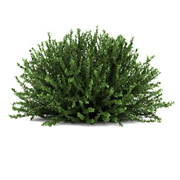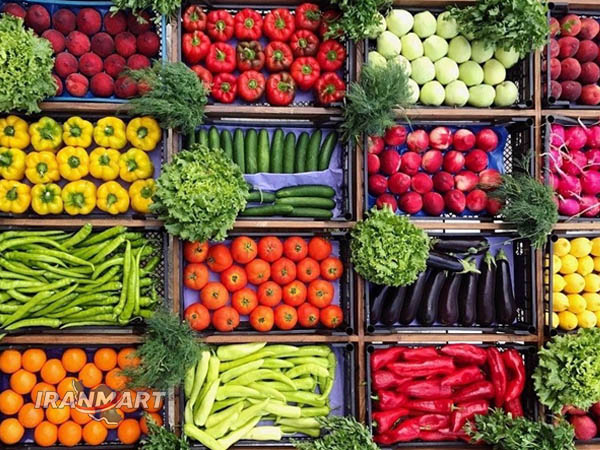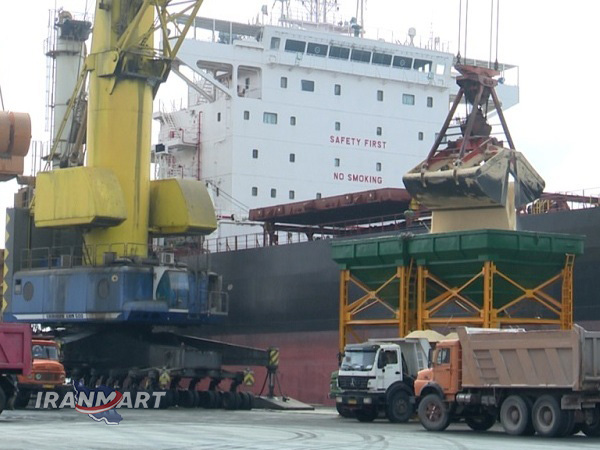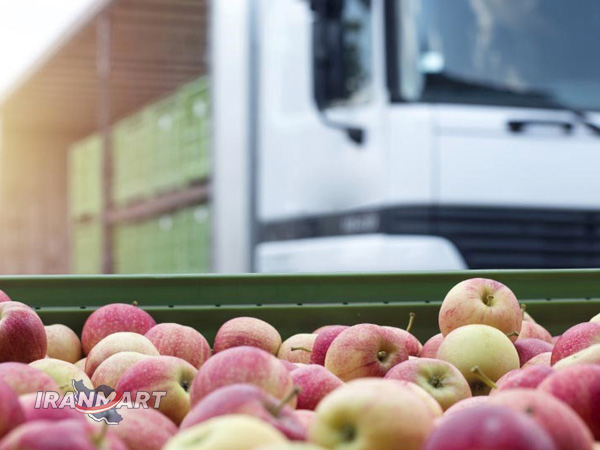As a middle-aged Indian entrepreneur and businessman, Sudhakar was always looking for new opportunities to expand his business. Today, he stumbled upon a writing that addressed the surprising advantages of importing agricultural products from Iran. Intrigued, he decided to do deep research and see if it was a viable diamond ace for him. To his surprise, he found out that there were many benefits to importing agricultural products from Iran. For one, Iran produces some unique agricultural products that are not found in his country. As well as desired quality and taste, such as saffron and pistachios. These products are not only delicious but also have a high demand in the global market. Moreover, importing from Iran helps to diversify the sources of agricultural products in the international market. This can lead to more stable prices and greater food security for importing countries.
Despite the potential challenges that could arise when importing agricultural products from Iran, such as trade restrictions, Sudhakar was determined to give it a try. He believed that the benefits outweighed the risks. So, began importing agricultural products such as dates, figs, red apples, and pomegranates. To his surprise, these products were a huge hit with his customers. They are interested in the unique flavors and textures that they couldn’t find elsewhere. But the biggest surprise came when Sudhakar realized that importing agricultural products from Iran was not only profitable but also found cultural exchanges between nations.
He started to learn more about joint cultures between Iranians and Indians and customs regulations and even traveled to Iran to meet some of his suppliers face-to-face. Through his professional business, Sudhakar was able to bridge the gap between the two countries and help people appreciate the beauty of Iranian agriculture. He realized that there was so much more to gain from importing agricultural products from Iran than just profits. It was a way to connect with people from different parts of the world and promote peace and understanding.
What Are Some of the Unique Agricultural Products that Are Not Produced Somewhere Else?
Iran produces some unique agricultural products that are not found in other countries, such as saffron and pistachios. These products are not only delicious but also have a high demand in the global market. Additionally, the country also produces dates, figs, red apples, and pomegranates, which are also popular among consumers. As mentioned in the above, Iran is a major producer of dates, figs, red apples, and pomegranates. These agricultural products are grown in different provinces of Iran.
For instance, the city of Bam in the Kerman province is famous for its high-quality dates. Figs are mainly grown in the Fars province in southern Iran. Red apples are cultivating in several regions, including the East Azerbaijan and West Azerbaijan provinces. Pomegranates are mostly grown in the Khorasan Razavi, Fars, and Isfahan provinces. Also if you are interested in the business of pomegranates do not miss the capital of pomegranates in Iran. Saveh, the familiar name of city in the Markazi province, especially in the autumn season.
What Possible Difficulties That May Occur While Importing Agricultural Products from Iran?
It is crucial to consider the potential difficulties that may arise while importing agricultural products from Iran. These difficulties could include issues with paperwork and documentation, customs regulations and inspections, transportation and logistics hurdles, language barriers, and fluctuating market prices. Furthermore, there may be concerns about product quality. Therefore, finding the best manufacturer, supplier, or farmer efficiently, and in compliance with international standards is necessary. It is crucial to conduct thorough research and due diligence before engaging in any trade agreements with Iranian suppliers to mitigate and manage these potential risks. Importing agricultural products from Iran involves several steps that must be carefully followed to ensure compliance with all relevant regulations and requirements.
This may include obtaining necessary permits and licenses, ensuring that the products meet all safety and quality standards. Depending on the specific products being imported, there may be additional considerations to take into account. For example inspection and testing procedures, packaging and labeling requirements. Some other factors like customs clearance procedures. With proper planning and execution, however, importing agricultural products from Iran can provide access to high-quality goods. This can be used for a variety of purposes, from food production to pharmaceuticals and beyond.
How Can Businesses Ensure They Get The Best Deal When Importing Agricultural Products from Iran?
When businesses import agricultural products from Iran, they must ensure they get the best possible deal. There are several factors that businesses should consider to ensure that the deal they are getting is fair and competitive. First, businesses should research the market and prices of similar products to get an idea of what a reasonable price range is. Second, it is important to carefully review the terms and conditions of the deal, including shipping costs, delivery times, and payment terms.
Third, businesses should verify the quality of the products they are importing to ensure that they meet the necessary standards and regulations. Finally, it is recommended that businesses work with a reputable and experienced importer who can provide guidance and support throughout the importing process. By taking these steps, businesses can ensure that they are getting the best deal possible when importing agricultural products from Iran.
Highlights That Guarantee the Affordability of Importing Agricultural Products from Iran?
One way to enhance the effectiveness of the written content is to offer more specific examples of the advantages and disadvantages of importing agricultural products from Iran. This can help the readers to have a better understanding of the potential risks and rewards associated with this type of trade. Moreover, providing additional information about the process of importing agricultural products from Iran could be useful as well. This may involve presenting a step-by-step guide or highlighting essential factors that businesses should consider when engaging in this kind of trade. Lastly, incorporating quotes or anecdotes from other entrepreneurs or business owners who have successfully imported agricultural products from Iran can add credibility and provide readers with real-life examples of what can be accomplished through this type of trade.
Innovative Ways to Reduce Transportation Costs In Importing Agricultural Products from Iran?
For the last, There are several innovative ways to reduce transportation costs when importing agricultural products from Iran. One effective method is to use intermodal transportation, which involves the use of multiple modes of transportation. Such as trucks, trains, and vessels, to transport goods. This approach can reduce transportation costs by utilizing the most cost-effective and efficient mode for each leg of the journey. Another way to reduce costs is to leverage technology to optimize logistics operations, such as utilizing real-time tracking and analytics to identify bottlenecks and optimize routes. Additionally, it is important to work with reputable and reliable logistics partners who have experience in the Iranian market and can help navigate any potential challenges or obstacles.
“I hope you enjoy this article. I would like to express my gratitude to my dear business partner in Iran, Mr. Mohammad. He has been instrumental in helping me find the best manufacturers and suppliers of agricultural products in Iran. He has directed me to the relevant associations and eased customs procedures. Mr. Mohammad is the manager of the THREETA International Trading Group and the owner of the Iranmart B2B marketplace. I wish him all the success in his professional life. Inshallah”.

























